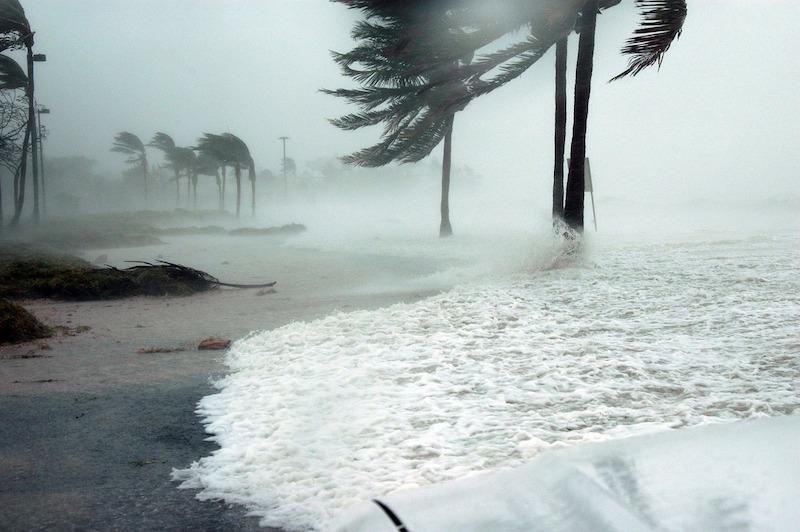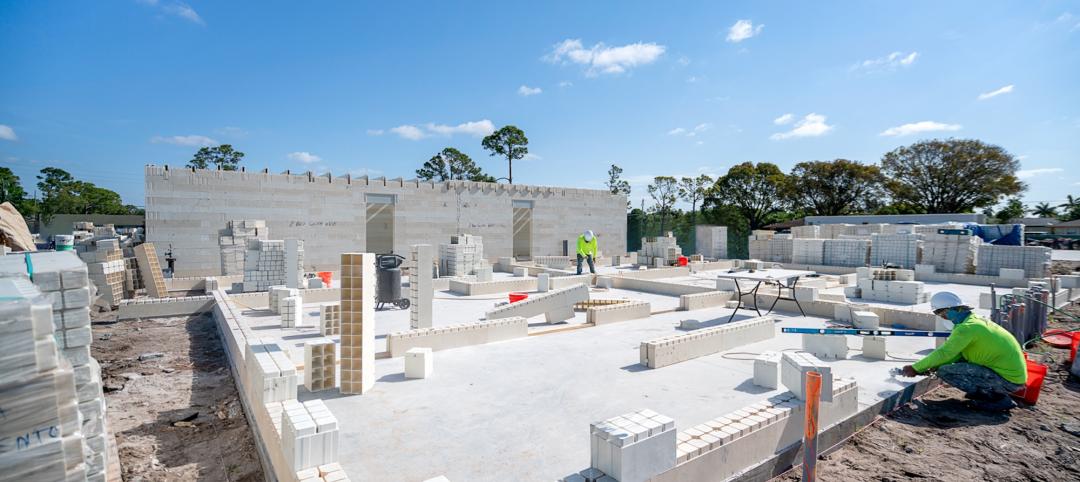The American Institute of Architects (AIA) is urging Senate lawmakers to adopt the Disaster Recovery Reform Act (DRRA) to ensure communities across America can recover from natural disasters more efficiently and cost-effectively.
AIA is supporting the legislation as it will prioritize pre-disaster mitigation and ensure that post-disaster assistance enables communities to rebuild with the latest model building codes to ensure future resiliency.
“Strong, disaster-resilient building codes are a vital foundation to creating safer communities,” said Rose Grant, chair of AIA’s disaster assistance committee. “Adoption of these codes go even further to help the built-environment battle the onslaught of billion-dollar disasters.”
Grant was speaking at the AIA’s educational briefing for policy makers Tuesday night, which provided insights on the lessons architects have learned serving as responders with AIA’s Disaster Assistance Program following hurricanes Maria, Harvey and Irma last year. The briefing also featured insights into how communities can prepare for the 2018 hurricane season that commences June 1.
“As hurricane season approaches, architects stand ready to help communities prepare for and recover from the kind of weather related events that victimized so many,” said AIA EVP and Chief Executive Officer Robert Ivy, FAIA. “We hope this discussion brings new insights and appreciation for how architects can assist communities in recovering from disasters and help to prepare for them in the future.”
AIA's Disaster Assistance Program has trained thousands of architect volunteers in responding to disasters. Through the program, architects serve as second responders providing critical safety inspections of buildings and infrastructures following disasters. In addition, architects provide lawmakers with insights and lessons they learn in the field to help shape better policies around disasters, which includes resilient-building policies.
“Forging relationships between architects and local officials is key to mitigating and preventing the damage caused by weather related disasters,” said Illya Azaroff, AIA (principal of +LAB Architect PLLC). “Of the post-Sandy policies AIA recommended, nine were enacted into law in New York and 10 were included in the New York City building code. This is just one of the many examples where architects have been able to lend their expertise to shape policies that support a better built environment.”
Visit AIA’s website for more information on its Disaster Assistance Program.
Related Stories
Adaptive Reuse | May 15, 2024
Modular adaptive reuse of parking structure grants future flexibility
The shift away from excessive parking requirements aligns with a broader movement, encouraging development of more sustainable and affordable housing.
MFPRO+ News | May 10, 2024
HUD strengthens flood protection rules for new and rebuilt residential buildings
The U.S. Department of Housing and Urban Development (HUD) issued more stringent flood protection requirements for new and rebuilt homes that are developed with, or financed with, federal funds. The rule strengthens standards by increasing elevations and flood-proofing requirements of new properties in areas at risk of flooding.
K-12 Schools | Apr 30, 2024
Fully electric Oregon elementary school aims for resilience with microgrid design
The River Grove Elementary School in Oregon was designed for net-zero carbon and resiliency to seismic events, storms, and wildfire. The roughly 82,000-sf school in a Portland suburb will feature a microgrid—a small-scale power grid that operates independently from the area’s electric grid.
Resiliency | Apr 22, 2024
Controversy erupts in Florida over how homes are being rebuilt after Hurricane Ian
The Federal Emergency Management Agency recently sent a letter to officials in Lee County, Florida alleging that hundreds of homes were rebuilt in violation of the agency’s rules following Hurricane Ian. The letter provoked a sharp backlash as homeowners struggle to rebuild following the devastating 2022 storm that destroyed a large swath of the county.
Codes and Standards | Apr 8, 2024
Boston’s plans to hold back rising seawater stall amid real estate slowdown
Boston has placed significant aspects of its plan to protect the city from rising sea levels on the actions of private developers. Amid a post-Covid commercial development slump, though, efforts to build protective infrastructure have stalled.
Codes and Standards | Mar 18, 2024
New urban stormwater policies treat rainwater as a resource
U.S. cities are revamping how they handle stormwater to reduce flooding and capture rainfall and recharge aquifers. New policies reflect a change in mindset from treating stormwater as a nuisance to be quickly diverted away to capturing it as a resource.
Building Tech | Feb 20, 2024
Construction method featuring LEGO-like bricks wins global innovation award
A new construction method featuring LEGO-like bricks made from a renewable composite material took first place for building innovations at the 2024 JEC Composites Innovation Awards in Paris, France.
Sponsored | BD+C University Course | Jan 17, 2024
Waterproofing deep foundations for new construction
This continuing education course, by Walter P Moore's Amos Chan, P.E., BECxP, CxA+BE, covers design considerations for below-grade waterproofing for new construction, the types of below-grade systems available, and specific concerns associated with waterproofing deep foundations.
Concrete | Jan 12, 2024
Sustainable concrete reduces carbon emissions by at least 30%
Designed by Holcim, a building materials supplier, ECOPact offers a sustainable concrete alternative that not only meets, but exceeds the properties of standard concrete.
Roofing | Jan 8, 2024
Researchers devise adaptive roof tile concept that adjusts to ambient temperatures
Scientists at the University of California Santa Barbara published a paper that proposes adaptive roof tile technology that can adjust to ambient temperatures. Using a wax motor, tiles could switch from a heating or cooling state enabling savings on heating and cooling costs.
















